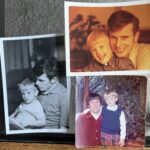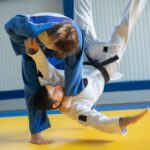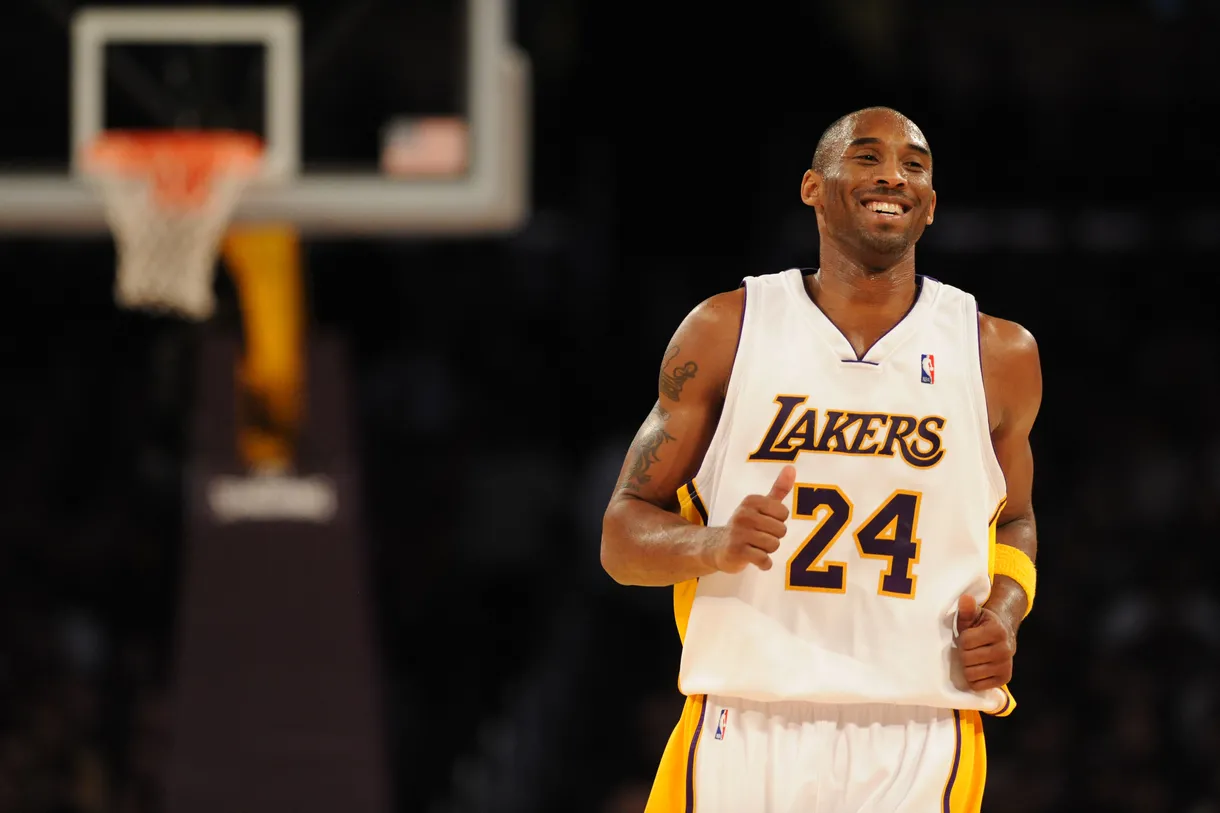Photo by Noah Graham/NBAE via Getty Images
The Promise and the Lawsuit, Part Two
Everybody breaks. Some teenagers might never imagine that the laws of entropy and the facts of mortality apply to them. (See “Too Dumb Things,” by TAT!) Similarly, some newlyweds may not know, especially if they are young, that they, themselves, will break. Physically, mentally, or emotionally, their beloved partner will also break.
As a young man, I promised myself I wouldn’t quit medicine if I ever got sued. I would not break. My intention was good, but only God can be certain to keep His promises. Did I keep mine?
It’s not just ordinary and “weak” people who break. NBA superstar Kobe Bryant died in a helicopter crash. Superman actor Christopher Reeve was paralyzed from the neck down after being thrown from his horse. Attila the Hun, one of the most feared and successful rulers of all time, died unceremoniously of a nosebleed. Even super people break.
* * *
Fibromyalgia Flare
As I contemplated writing this essay, the muscles in my back cramped up, both suddenly and hard. A vice-like band encircled my head, and a stabbing, burning sensation struck me through the eyes. I found I could not endure the sound of my own voice or the speech of my family members, especially my grandkids, though on this day I made it through lunch without leaving the table early.
“What’s wrong with you,” my wife, daughter, and son-in-law asked me in unison. “Are you okay?”
They recognized the terror in my face; they became my mirror.
I had not understood what was happening to me. I had thought maybe I was becoming ill, for my bowels were changing. My hands and my feet had turned ice-cold, and no number of hot baths was warming them up. Hiding in my bedroom with blankets and pillows, wearing hearing protection and eye coverings, had given me no comfort.
How profound the mind-body connection! Yet in my case, the nexus is broken. Some physical wounds that should hurt me are not painful; consequently, I injure myself through overuse without knowing it. On the other hand, non-painful stimuli, like light touch, or the mere remembrance of a trauma, can devastate my whole body. I might be functioning well one moment, when out of nowhere, all my faculties fail me.
How can I continue, writing about hardship, if half the time the mere reflection upon it destroys me, launches me into a pit of terror from which it feels like there is no exit? Whenever I’m fortunate to escape the enveloping darkness immediately, whether by my own climbing or by being pulled out, it’s not so bad. I can carry on. But too easily I can get stuck in a deep prison for weeks, months, even years, barely able to keep my job.
My most effective coping mechanism is simple, in theory. I must get cardiovascular exercise every 48 hours to function well. After 72 hours without break-a-sweat exercise, I’m usually plunging into a well of pain and anxiety. From there, the very thought of exercise is like imagining a leap off a cliff into an ocean of ice water: I know I will probably survive the jump, and perhaps the swim to shore, but it all seems so pointless. The cure for my problem is painful. Then I remember the recurring pattern I’ve witnessed for 30 years: with every 24 hours I delay in exercising, my physical weakness increases, and the time required to return to normalcy doubles.
The memory of this lawsuit broke me for a day. But then I dared to try running again. The pleasant outside air seemed frigid to me, so I bundled up with a windbreaker, hat, and gloves, then persevered through an old, memorized workout. The following day I had improved enough to keep going, to resume my writing. I’m still physically sore, right now—with a “misery level” of five out of 10—but I’m able to complete my task.
* * *
Cause-and-Effect, Understood by Lawyers
Some of my patients don’t seem to believe that poisons will harm them. They smoke four packs of cigarettes a day for fifty years, (4 packs/day x 20 cigarettes/pack x 365 days/year x 50 years = 1.46 million cigarettes), then get violently angry with me when they can’t breathe well. “I don’t want to take any stupid medicine or expensive inhaler! I just want you to fix my breathing.” Other patients drink a fifth of a gallon of hard liquor daily, often from the age of 16 to 42 (7,400 liters of alcohol). Eventually their liver shrinks down, hardens, and fails; they turn orange; their belly fills with fluid (ascites); and then they die at the age of 43. I care about all my patients, even the ornery and foolish ones, but often I can’t help them. They don’t accept the principle of cause-and-effect.
By contrast, some of my patients—like my engineers and lawyers—devote their entire careers to broken things. I never have to persuade any of them that their choices have consequences. Lawyers-as-patients are therefore some of my all-time favorite people. They may not take care of themselves properly, and their high-stress jobs take a toll on them, but they are invariably talented with language, well-informed, and reasonable in their expectations. So I’m very fond of lawyers. Having lived in Kazakhstan, Nigeria, and Mexico—all nations where citizens simply vanish far too often, with no justice available—I feel indebted to American lawyers for helping us maintain a society that’s more equitable than most. That said, I don’t want to meet them in a courthouse ever again.
* * *
Lessons Learned
I’m prohibited from writing about the medical details of the lawsuit against me. But I learned some things over three long years of litigation.
- Lawyers use their tongues like knives; doctors use them as healing balm. It’s one of the greatest differences in our training. The consequence? The doctor with his healing intentions cannot persuade the prosecuting attorney of the correctness of his thoughtful care because that attorney isn’t interested in healing balms.
- When a “Notice of Intent to Sue” lands on your desk, you shouldn’t open it right away. Instead, wait a day to consider that everybody breaks. You will need help.
- After reading the Notice of Intent, do not proceed to open the medical chart to investigate the issue. Every click of the mouse is recorded for the lawyer with his knife tongue.
My behavior changed in several ways because of the lawsuit:
- No longer do I respect a patient’s wishes when he says, “Don’t write that down.”
- No longer do I say, “The patient declined hospitalization.” Instead I write, “The patient understood my recommendation of hospital evaluation for his recent chest pains; he refused to go by either ambulance or private vehicle to the emergency room.”
- No longer do I offer to stay late to see that difficult patient who absolutely needs to go to the ER but refuses to do so. Previously I reasoned, “Better that he sees me than nobody.” I think differently now.
- I lost a portion of the joy of practicing medicine. Sometimes when going into a patient exam room, I imagine I’m a fireman charging into a burning building to save someone’s life. After doing my best to rescue the victim, I discover I’m being shot at by the injured person’s family members. Some of those relatives are lurking outside the burning building, targeting me with their sniper rifles.
On a happier note:
- I document my medical thinking and actions considerably better than I did before.
- I follow up with patients by phone more often than before to verify that they are not failing to do what they need to for their own health and safety. Then I document my phone call.
- Finally, I reduced my medical workload so I could write more. Why not take a chance at making a wider, longer-lasting impact on hurting people? Life is short, but art is long. Perhaps through my writing, more people will gain insight into their own pain and suffering.
* * *
Summary
I believe I’ve mostly kept my promise not to quit medicine after the lawsuit, though the nature of my healing labors now includes writing. I changed what I do, and how I do it, as a matter of survival. Because everybody breaks.
If you liked this post, please send it to a friend. If the reading audience grows, agents and publishers become suddenly far more keen on joining in the Adventures of TAT!
Copy URL to Clipboard






8 responses to “The Promise and the Lawsuit, Part Two”
Thank you for opening up about what your life is like. I appreciate hearing about what is hard and how it changes you. You are an encouragement and blessing to me!
Thanks, Masatu.
Thank you for sharing your pain and your lessons you’ve learned. You are a motivation and one of my heroes!
Thank you for the encouragement, and for loaning me–literally–the superhero costume of Mr. Incredible! It’s fun to pretend.
A couple results of what you experienced is finding out how immensely your value is to your patients and yourself ( except a half of your patients don’t realize it !)
Most people don’t come anywhere close to realizing this about themselves in their lifetime, you are very lucky. Life threw its rocks at you and you got to the right place to find value in that assault.
Thanks, Clay. Life strikes us all with quite a few rocks, but there’s almost always somebody worse off than we are. Whenever I meet such folks, enduring extreme hardship–and I meet them regularly, almost daily in my office–it helps me to look at my own issues with a better attitude. In a way, it’s the people who suffer harder than I do, who help me bear my load. They teach me how to help others by their example. What a paradox, that strength might come through weakness.
Thank you for sharing. May God be your strength and source of wisdom. My prayers are with you.
p5iajk